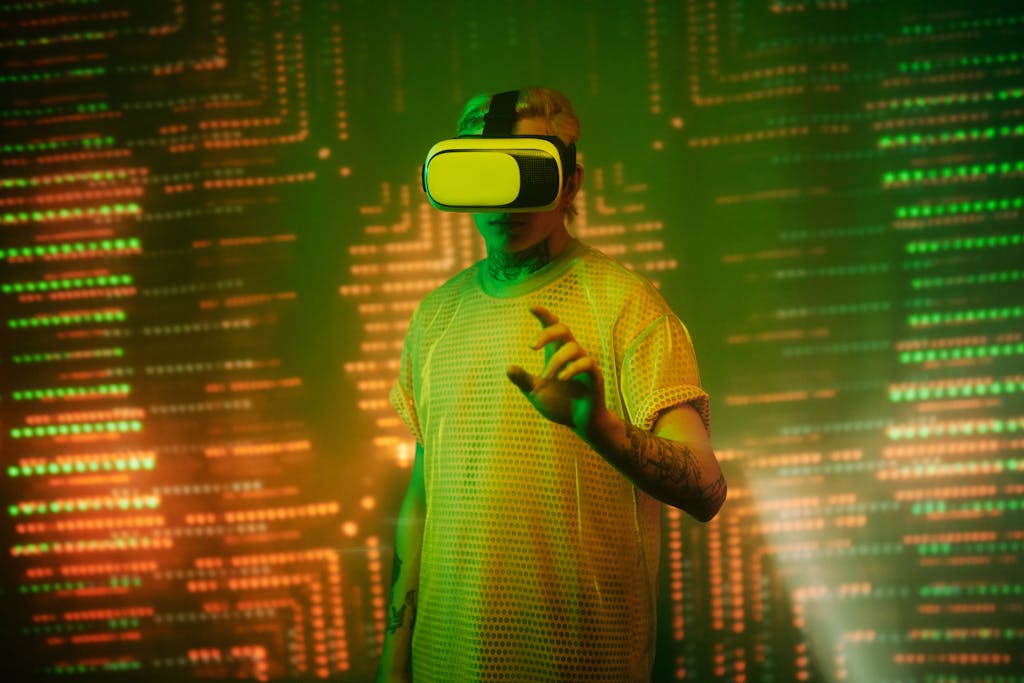
In today’s world, technology places a very crucial part. It has revolutionized our daily lives. It has its effect in healthcare, education, business, and entertainment. It has fostered global communication and enabled the development of small cities.
The world has witnessed an enormous change in technological advancements in 2024, particularly in the field of artificial intelligence. Technological advancements spanned various fields, significantly impacting daily life and scientific progress. The most notable of these developments include:
AI in Scientific Research
AI has helped scientists make scientific research and discoveries that were nearly impossible in the past. For example, it has helped understand protein structures, which is helpful in finding new medicines and detecting diseases and drug discovery.
Google’s Quantum Chip
Google introduced ‘Willow,’ a quantum chip that solves problems much faster and reduces errors. Quantum computing has taken a significant leap forward with this innovation, which could revolutionize fields like AI, drug discovery, medicine, and energy efficiency.
Space Technology
SpaceX advanced rocket-catching technology, enhancing the reusability of rockets and potentially reducing space travel costs, marking a significant step in space exploration. Its goal is to be ready to fly again within an hour of landing.
Biotechnology: HIV Prevention
Biotechnology has made significant strides in HIV protection. Gilead’s enoxaparin, a highly effective HIV preventive injectable drug, offers exceptional protection among high-risk population and promises easier access in poorer countries.
Green Energy Technology
Use of green energy technologies focus on enhancing the efficiency and reducing the costs of renewable energy sources such as solar, wind, and bioenergy, contributing to sustainable future.
AI Applications in 2024
Several AI applications have emerged, significantly transforming various industries:
AI in Smart Cities
AI is revolutionizing urban living controlling traffic system, less energy consumption, and public safety, helps in waste management by recycling, and providing public transportation and smart parking, contributing to the development of smart cities. AI also enables better communication between city officials, helping in city management.
AI in Business Applications
AI-powered business applications offer innovative solutions, driving efficiency. They have revolutionized customer experiences, accelerated business operations, and boosted employee productivity, leading to more efficient and cost-effective business processes.
Smartphone Advancement
Breakthroughs in AI have enabled the development of advanced features like generative AI tools for image enhancement, voice assistance, and real-time language translation. Samsung’s Galaxy S24 series and Google’s Pixel 9 series showcase these capabilities, transforming the smartphone experience.
AI in Healthcare Diagnostics
AI applications in healthcare diagnostics are transforming the industry by enabling faster and more accurate disease detection, leading to improved patient outcomes.
Large Language Models (LLMs)
LLMs have emerged as a groundbreaking technology, with applications in protein development, scientific research, and even drug discovery.
AI Goals of 2025
As we approach 2025, AI goals are quite ambitious. We plan on rapid advancement of technology. Significant key development goals include:
Agentic AI: The focus is on creating AI systems capable of autonomous decision-making and collaboration without needing any human supervision, enabling more efficient problem-solving and task execution.
Post-Quantum Cryptography: Developing cryptographic methods to secure quantum computers from any outside attack. It is to ensure data security in the forthcoming quantum era.
AI Governance Platforms: Established for the purpose of ensuring right, responsible, and ethical use of AI (artificial intelligence).
Ambient Invisible Intelligence: Refers to AI environments where electronic devices or sensors are seamlessly integrated and can recognize the presence of human beings and adapt accordingly.
Polyfunctional Robots: Advancing robots capable of performing multiple tasks rather than being specific to single task. They have different tools or configurations and adapt according to their task. Highly flexible as there is no need of reprogramming.
Disinformation Security: Developing technologies to detect the spread of false information. It is essential to maintain information integrity and public trust.
Energy-Efficient Computing: Also known as Green Computing focuses on reducing the energy consumption of computing systems while maintaining performance for healthy environment and cost saving.
Neurological Enhancement: Or Neuroenhancement refers to exploring technologies that enhance cognitive functions to improve human capabilities and quality of life.
Hybrid Computing: Combining analog and digital computing seeks to solve complex problems more efficiently, and reduce energy consumption.
These development goals reflect a concerted effort to harness technological advancements responsibly, ensuring they contribute positively to society while addressing emerging challenges.
Drawbacks
With the advancement in AI, cybersecurity issues have also risen. Cyberbullying, hacking, and other privacy concerns have increased. Moreover, unemployment is a major issue as AI has taken over many jobs. It has also reduced human thinking abilities as people have become so reliant on it.
Conclusion
If we take a look back at 2024, we can see a remarkable advancement in technology. In 2024, we got to see development in different sectors of technology like artificial intelligence, space technology, etc. As we step into 2025, we can expect even more exciting developments that will continue to transform our world.
Author
Manahil Shoaib




